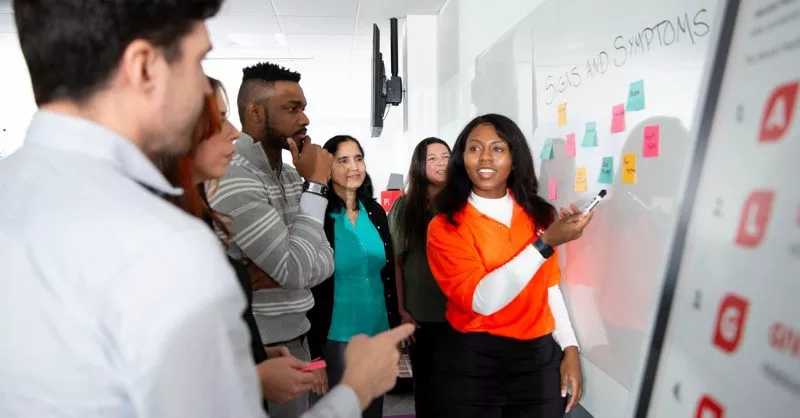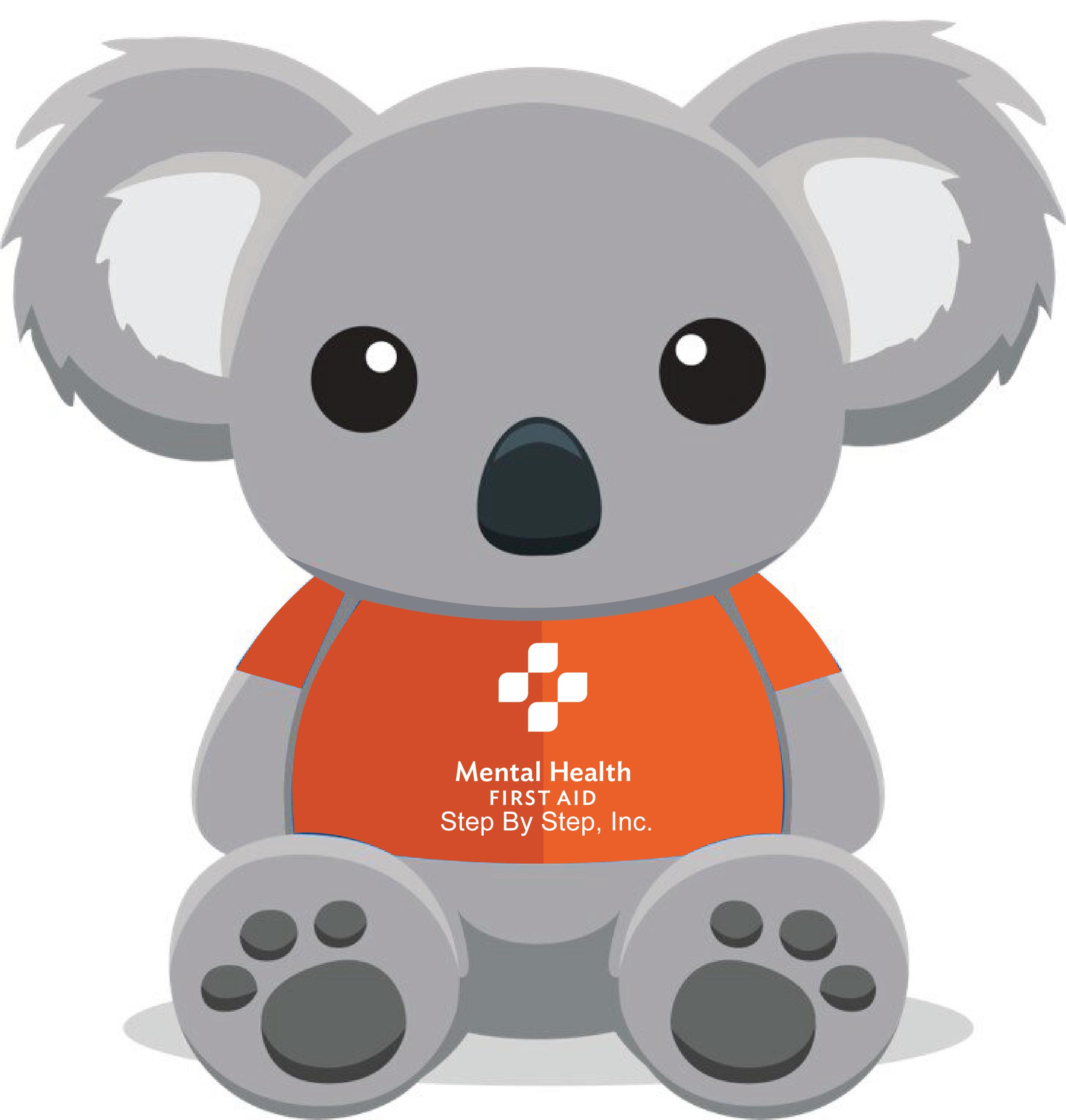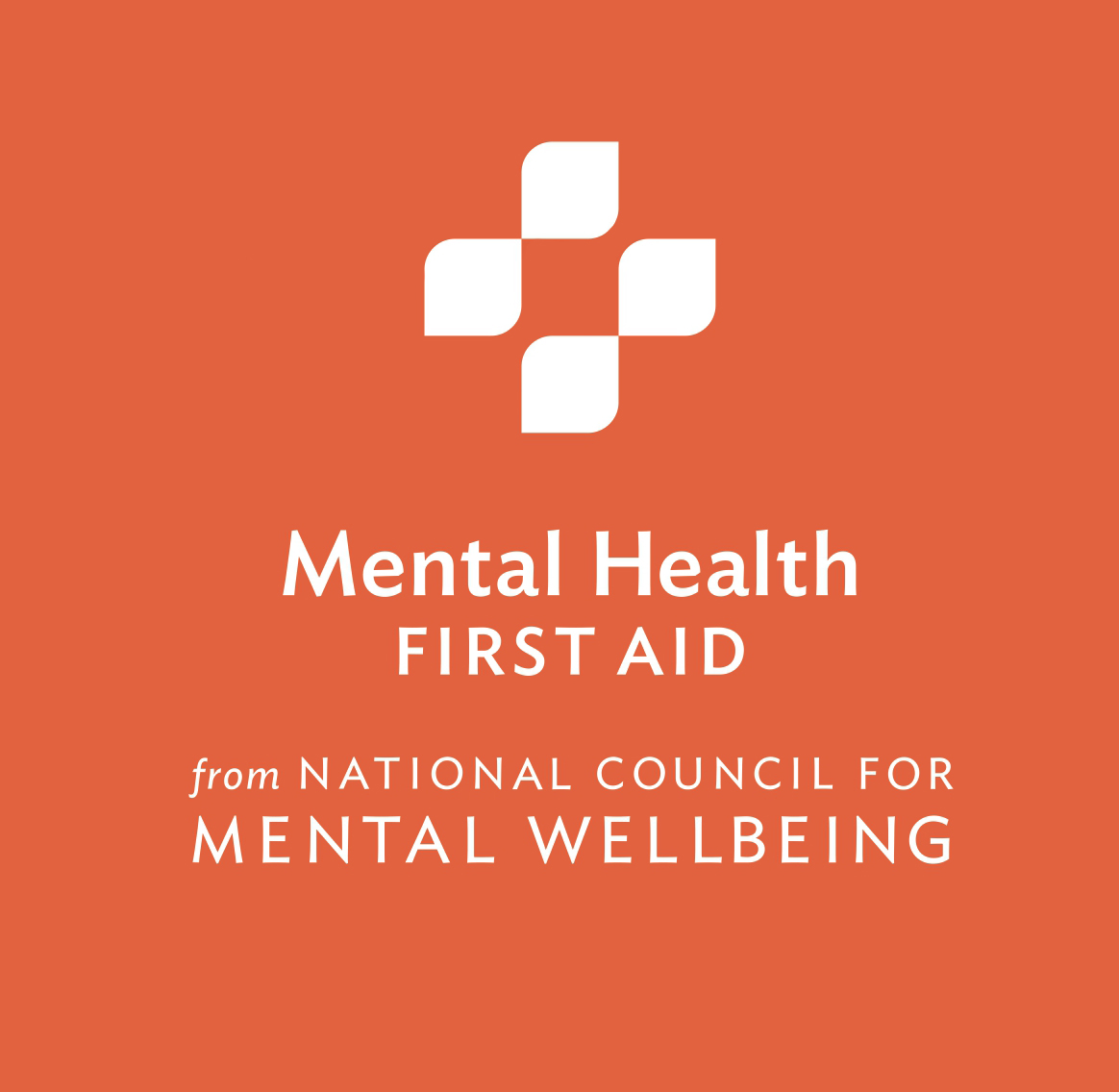
Dedicated to advancing wellbeing, Step By Step, Inc. proudly provides Mental Health First Aid (MHFA)

 Mental Health First Aid (MHFA) equips individuals with the tools and skills to identify, understand, and respond to signs of mental health and substance use challenges.
Mental Health First Aid (MHFA) equips individuals with the tools and skills to identify, understand, and respond to signs of mental health and substance use challenges.
#BeTheDifference
Most of us would know how to help if we saw someone having a heart attack — we’d start CPR or call 9-1-1. But too few of us would know how to respond if we saw someone having a panic attack or showing signs of alcohol use challenge.
Just as CPR helps you assist an individual having a heart attack, Mental Health First Aid (MHFA) teaches you how to assist and support others who may be experiencing a mental health or substance use challenge. MHFA teaches people how to recognize and respond to signs of mental health or substance use challenges. The training covers how to respond to noncrisis and crisis situations and support people in need, whether they’re adults, youth or teens. Over the last decade, extensive research has shown how MHFA improves mental health outcomes across the U.S., transforming workplaces, classrooms, community programs and more.

What MHFA Covers
- Common signs and symptoms of mental health challenges.
- Common signs and symptoms of substance use challenges.
- How to interact with a person in crisis.
- How to connect a person with help.
- Expanded content on trauma, substance use and self-care.
MHFA is about spreading awareness, starting conversations and encouraging people to take care of their minds just as much as they care for their bodies. Step By Step, Inc. joins with the MHFA instructors across the US to ensure everyone in America has at least one First Aider in their close circle of friends, family and peers. Every 1 in 15 people should be certified to identify, understand and respond to signs and symptoms of mental health and substance use challenges.
Many people with mental health challenges do not seek help or delay seeking help.
In the United States, only 41% of the people who had a mental disorder in the past year received professional health care or other services. Even when people decide to get help, it’s frequently after many years of waiting and putting it off. The longer a person waits to seek help, the more difficult their recovery can be. But research shows that people with mental health challenges are more likely to seek help if someone close to them suggests it. That can be you.
There is a stigma associated with mental health challenges.
People are often ashamed to talk about their mental health challenges with family and friends because they’re worried about what others will think. This stigma can cause people to isolate themselves, internalize the stigma and begin to believe the negative things they hear other people say. With a better understanding of mental health and substance use, you can open the conversation and help reduce stigma and discrimination.
You learn an action plan.
When you take a Mental Health First Aid (MHFA) course, you learn not only how to recognize warning signs of a mental health crisis, but how to respond with the MHFA ALGEE Action Plan. Sometimes professional and other support services are not available in a crisis. When that happens, First Aiders like you can assist the person in an effective and safe way to get appropriate help and support.

Assess for risk of suicide or harm.
Listen nonjudgmentally.
Give reassurance and information.
Encourage appropriate professional help.
Encourage self-help and other support strategies.
Why Does Mental Health Matter?
Consider these statistics:
- 1 in 5 U.S. adults experience mental illness each year.
- 1 in 20 U.S. adults face serious mental illness annually.
- 1 in 6 U.S. teens have a mental health condition, but only half of them get treatment.
- 50% of mental illnesses start by age 14, and 75% by age 24.
- In 2023, 20% of high school students seriously considered suicide.
These stats are more than numbers. They represent real people — including friends, family, coworkers and classmates — who need support. Everyone deserves support, understanding and care when they’re struggling.
More information, Contact Tracy tciabattoni@stepbystepusa.com
If you or a loved one are struggling,
help is a call, text, or message away:
Call 1-800-273-TALK(8255)
National Suicide Prevention Lifeline
Call 9-8-8
Text ‘PA’ to 741741
Crisis Text Line
Visit 988lifeline.org/chat
National Suicide Prevention Lifeline Online Chat

